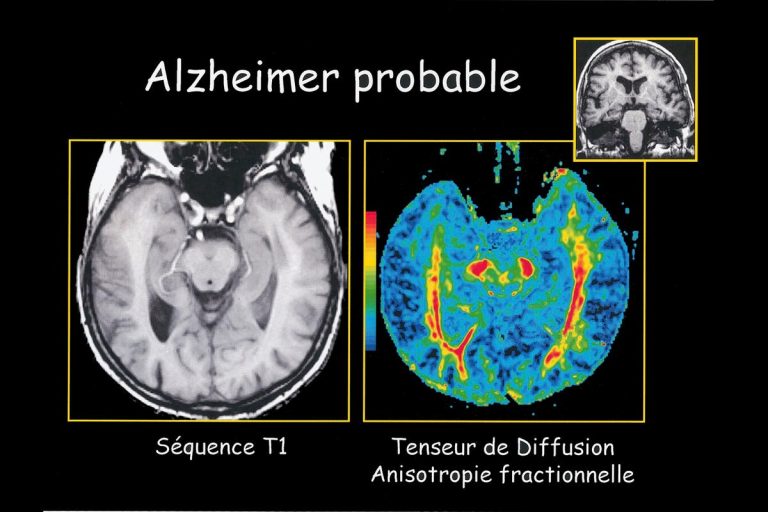The FDA has approved various medications in hopes of providing anything that can truly change the course of Alzheimer’s disease. But medications have failed to do so. No medication so far stops the disease nor cures it. One consistent finding in all the research studies that precede FDA approval of any drug to treat Alzheimer’s disease is that they work best in the early stages of Alzheimer’s disease. But what does “early stage” really mean?
At AgingParents.com, we see many families who have a loved one with dementia symptoms. They say to us, “Mom has a few memory problems but she doesn’t have dementia”. I ask myself how they know that. They say “Dad has no medical diagnosis of Alzheimer’s disease. He’s in memory care. I think he’s just forgetful.” Really? We learn that Dad has never been tested for a doctor to reach a diagnosis. So the family doesn’t really know if Dad has this disease or not. They certainly wouldn’t know if Dad is in the early stage of a disease they believe he doesn’t have.
The Issue With Getting A Diagnosis
When a treating doctor learns that an older person has some memory loss, it may be dismissed. “He’s just getting old”. Alzheimer’s disease is not simple to diagnose. There is no blood test for it, no fast x-ray, nor quick way to measure anything a doctor can use to be sure a patient does or doesn’t have the disease. Instead, the diagnosis may be reached by process of elimination, as in what else could it be with these signs and symptoms? If the physician decides to explore the possibility with expensive scans (P.E.T., fMRI’s) there is no assurance that Medicare will cover the cost. Medicare Advantage plans all vary in what they will pay for and what won’t be covered beyond the most basic things. The more advanced screening of the brain is beyond the most basic things to do. So, we understand that this screening can offer better information than other more basic things, but we do not see doctors ordering it often.
So how does one know that the elder has “early stage dementia “or whether the symptoms are caused by something else? We may not know. Hence, the prescription of any medication for Alzheimer’s disease may not be considered until symptoms are quite obvious and significant. Perhaps that’s in the “middle stage of dementia”. By then, all studies show that the medications approved so far by the FDA are less effective than they could be in the early stages of dementia. Perhaps they will not be effective at all past the early disease stage.
The Other Issue: Denial
For elders themselves, the question of possibly having Alzheimer’s disease is terrifying. They may not even realize that they are impaired, a fairly common situation we see in our work. Or if they do have indications like significant memory loss that interferes with daily life, family or partner will compensate for them, make excuses, cover up the problem or refuse to take them to see a doctor. They don’t want to face the potential diagnosis. The early stage of Alzheimer’s diseases passes under cover of denial. When it progresses to the middle stage, when the person needs help with daily activities, it may be too late for any medication to have the desired temporary slowing effect on memory loss.
The Myth And The Reality
Every medication that gets approved for treating Alzheimer’s disease is supposed to offer hope that we can “do something”. But the something is limited with every one of them. Questions remain as to whether side effects like bleeding into the brain or brain swelling from taking a medication are worth the risk. If the best anyone can get from recently approved medication is a temporary 27% slowing of memory loss, one must question the risk versus benefit ratio. Yet, we as a society are desperate for any treatment of this devastating disease. We cling to hope. We can easily ignore potentially harmful or even fatal risks when we want so much to help the impaired person. And the drug manufacturers see a potential $10B market for that hope people have. No matter the risks of taking any medication that is supposed to benefit a person with early stage Alzheimer’s disease, it will be heavily promoted by the manufacturers. They understand the desperate desire for hope.
The Takeaways
- Diagnosis: If you have a loved one with memory loss that interferes with their daily life, you are seeing a possible first, and early warning sign of Alzheimer’s disease, according to the Alzheimer’s Association. That can prompt you to ensure that your elder sees a physician with the purpose of exploring the cause and getting enough testing done to reach a conclusion, a diagnosis. If you and your aging loved one are willing to take the risk of newly approved medication to get some temporary change in memory loss the time to seek that is at the time of diagnosis. That’s “early stage”.
- Do not expect any medication, no matter the hype, to fix, cure or change the eventual progress of Alzheimer’s disease or other dementia. They can’t do that. No medication currently offers a cure.
- If your loved one is prescribed any medication related to dementia, ask the prescribing doctor to advise on how long the patient should take the drug. I have personally known of a client whose mom was taking drugs supposedly to help with dementia. The mom was growing steadily worse over time. She had been taking the medication for ten years! Medication was doing nothing. Yet the doctor didn’t take her off the drug until the daughter asked him to, as I had suggested. All medications have side effects. No one should keep taking a medication that has no positive effect.
Read the full article here









